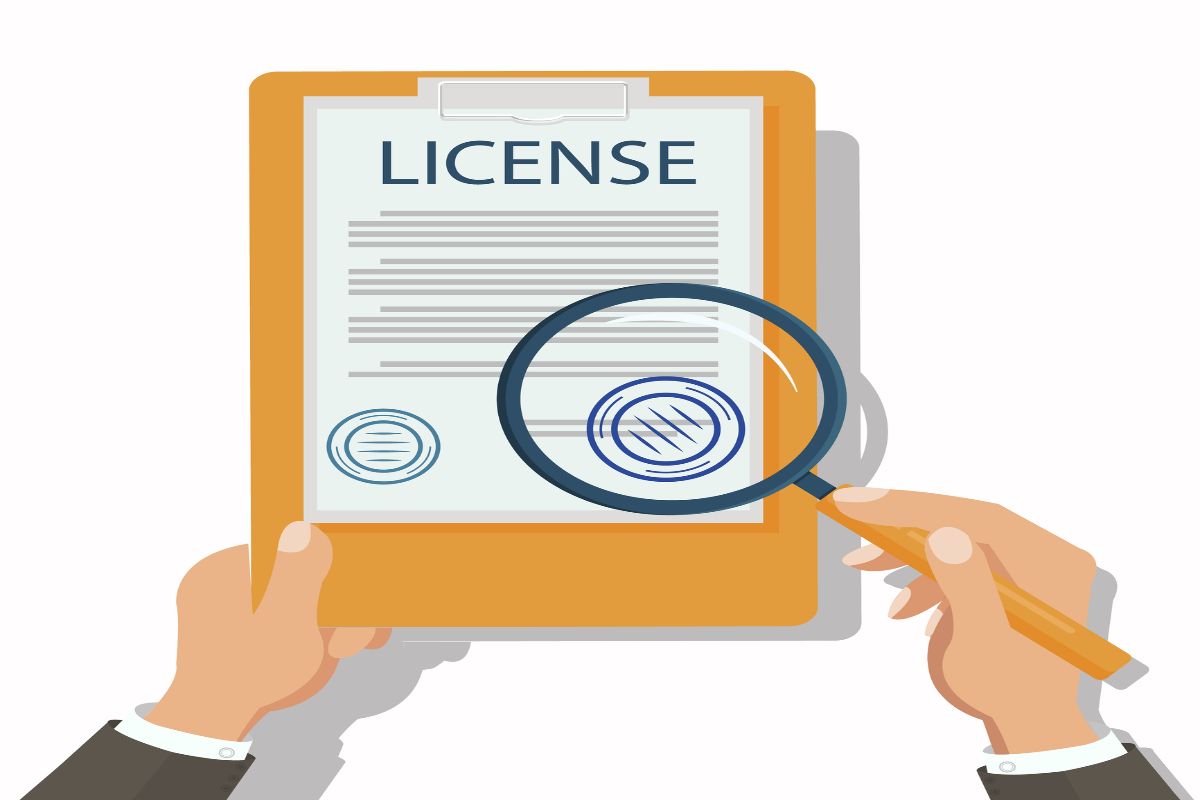
Understanding Texas State Board of Public Accountancy (TSBPA) regulations and guidelines can be challenging, especially when your career and reputation are at stake. As a Certified Public Accountant (CPA), you are held to a high standard due to your fiduciary responsibilities. This makes you susceptible to complaints and disciplinary actions that can jeopardize your license.
This guide provides preventive steps to avoid potential TSBPA licensing issues. We’ll explore understanding the scope of TSBPA regulations, maintaining ethical and professional standards, and best practices for record-keeping and documentation.
Additionally, we’ll examine how to handle common complaints and allegations that could be filed against you and why consulting a CPA license defense attorney from Bertolino LLP is crucial for averting and addressing potential licensing issues.
Understanding the Scope of TSBPA Regulations and Guidelines
One of the foundational steps in avoiding potential licensing issues with the TSBPA is to thoroughly understand its regulations and guidelines.
The TSBPA has set forth a range of rules and requirements, detailed in Chapters 501-527 of The Texas Administrative Code, that govern various aspects of accounting practice in Texas. These cover everything from professional conduct and ethical obligations to specific financial reporting and auditing procedures.
To ensure you are in full compliance:
- Regularly review the Texas Administrative Code sections relevant to your practice.
- Stay updated on new amendments or changes in the Rules of Professional Conduct, as non-compliance can lead to disciplinary action, even out of ignorance. To help you out with this, Bertolino LLP offers a free Know Your Regulator publication providing regular updates on developments with TSBPA rules and laws. Sign up by e-mailing us at [email protected].
- Consider taking continuing education courses that focus on TSBPA regulations and ethical standards.
By gaining a comprehensive understanding of what the TSBPA expects from you in your professional role, you will be able to avoid violations that could lead to complaints or investigations.
Maintaining Ethical and Professional Standards
When practicing as a certified public accountant in Texas, adherence to ethical and professional standards is not only a moral obligation but a legal one. Falling short in these areas could trigger an investigation by the TSBPA and potentially risk your CPA license and career.
Here are guidelines to follow for maintaining ethical and professional standards:
- Client confidentiality: Always respect the confidentiality of your clients’ financial and personal information. Unauthorized disclosure could not only damage your reputation but lead to severe penalties.
- Transparent communication: Be clear and honest with clients, regulatory agencies, and auditors. Misrepresentation or deceit can lead to allegations of professional misconduct.
- Quality of service: Strive to provide the highest quality services by staying updated with the latest accounting practices, tax laws, and auditing standards. Negligence or incompetence in your professional duties could result in disciplinary action.
- Avoid conflicts of interest: Always disclose any potential conflicts of interest to all parties and take steps to mitigate them.
As stated in the above section, it’s also advisable to regularly consult the ethical and professional standards outlined in the TSBPA’s Rules of Professional Conduct.
Adhering to these standards will help you maintain a strong professional reputation and reduce the likelihood of encountering legal issues that could jeopardize your license.
Record-Keeping and Documentation Best Practices
Keeping meticulous records is good practice and a crucial line of defense should you ever face an investigation by the TSBPA. Here are some best practices to keep in mind for record-keeping and documentation:
- Written consent and agreements: Always keep copies of clients’ written consent and representation agreements. These documents establish the nature and scope of your professional relationship and can be invaluable if questions ever arise about your responsibilities.
- Financial statements and audit reports: Maintain comprehensive and accurate financial statements and audit reports for each client. Ensure all figures are backed by verifiable data, which you should keep on hand.
- Client communications: Archive all client communications, including texts, emails, memos, and meeting notes. These can help substantiate any decisions or advice given during the course of your work.
- Time logs: Keep detailed logs of the time spent on each client’s affairs. This can help defend against allegations of negligence or professional misconduct.
- Compliance checklists: Create checklists to ensure you’ve covered all compliance aspects, such as tax filing requirements or financial disclosure obligations, for each client or project. Document when each task is completed.
- Software and digital platforms: Utilize secure and reliable accounting software and digital platforms that can automate the documentation process and securely store sensitive information. Ensure your software complies with industry standards for security and data protection.
- Regular audits of your records: Periodically review your records for completeness and accuracy. This proactive step can help you identify and correct minor issues before they become significant problems.
- Retention policies: Familiarize yourself with the TSBPA’s guidelines and state laws on how long you should maintain client records, and develop a secure system for archiving old records in compliance with these guidelines.
- Data security: Always use secure methods for storing sensitive data, both in digital and physical form, to protect against unauthorized access or data breaches.
By implementing these best practices, you demonstrate your commitment to professionalism and ethical behavior and protect yourself should your practice ever come under scrutiny.
Click to contact our professional license defense lawyers today
Educate and Prepare Yourself for Potential Complaints and Allegations
It’s crucial to know how to handle common complaints and allegations should they arise, as they pose a significant risk to your license, your livelihood and your career.
Here are preventive steps you can take:
- Stay informed: Familiarize yourself with the most common complaints against accountants, including allegations of professional misconduct, negligence, or fraud. You can take targeted, preventive measures by knowing what you’re most likely to face.
- Client communication: Make sure you maintain open and transparent communication with your clients. Many complaints arise from misunderstandings that could be easily cleared up through clear, documented conversations.
- Documentation: Always document any advice or steps taken in the course of your work. This not only aids in clear communication but also can provide you with evidence should a complaint be made against you.
- Third-party validation: Consider seeking third-party validation for your proposed actions in complex or particularly risky situations. This could be from a senior accountant, a legal advisor, or an industry ethics committee.
- Consult legal advice: If you are facing a complaint, seek legal advice immediately. Firms like Bertolino LLP specialize in professional license defense and can guide you through the process of protecting your license.
By proactively addressing these areas, you can significantly reduce the risk of facing a complaint or allegation, allowing you to focus on your professional responsibilities.
Complete a Case Evaluation form now
What to Do if a Complaint Is Filed Against You
Even with the best preventive measures, a complaint may still be filed against you. Knowing the immediate steps to take can mitigate the risks and help you navigate the complex process of addressing a regulatory complaint. Here are some proactive measures you can take:
- Don’t ignore the notice: The first and most important step is to take the complaint seriously. Ignoring it won’t make it go away and will likely exacerbate the issue.
- Consult an attorney: As soon as you receive notification of the complaint, consult a professional license defense attorney experienced with TSBPA cases. Firms like Bertolino LLP have years of experience handling these cases and can provide invaluable assistance in crafting your response and guiding you through the investigation process.
- Review the complaint: Familiarize yourself with the specifics of the complaint. Know the allegations and collect evidence that can help you refute them.
- Prompt response: You usually have a limited time to respond to the TSBPA. Draft a well-thought-out, factual response to the allegations, ideally with the assistance of your attorney.
- Prepare for an investigation: If your case escalates and an investigation is initiated, cooperate fully with the TSBPA. Ensure your documentation is in order, and consult your attorney to prepare for an investigative interview, informal conference to discuss your complaint or an administrative hearing.
- Be cooperative but cautious: Cooperate with the TSBPA’s investigation, but remember that anything you say or provide can be used against you. Always consult with your attorney before answering questions or handing over documents.
- Internal review: Conduct an internal review to determine if the complaint has merit. If there are areas where you could improve, take immediate action. This can mitigate the current issue and demonstrate your commitment to upholding professional standards.
- Collect evidence: Gather relevant documentation that could help prove your compliance with TSBPA rules and demonstrate your professionalism. This could include correspondence, financial records, or testimonials from clients or colleagues.
- Dispute resolution: Consider professional mediation services as a first step in resolving the complaint. An impartial third party can help clarify misunderstandings and find a middle ground.
- Transparency with stakeholders: If appropriate and advised by your attorney, keep stakeholders such as partners informed about the ongoing issue and the steps you are taking to resolve it.
- Prepare for possible outcomes: If your matter goes to a hearing, prepare for possible outcomes like taking classes to meet education requirements, probation, or even an accounting license suspension. Your attorney will help you understand your options and the likely scenarios.
- Learn and adapt: Use the experience to improve your practices regardless of the outcome. Update your policies and procedures based on your knowledge from handling the complaint.
By following these steps, you position yourself in the best possible manner to resolve the complaint quickly and favorably, thus protecting your license and professional reputation.
Consult a License Defense Attorney: When and Why
Consulting a license defense attorney can serve as a proactive and reactive measure. The aim is to calm turbulent waters when a complaint has been filed against you and ensure you are in full compliance with all Texas BPA regulations and guidelines to prevent such occurrences in the first place.
Initial Career Setup
When starting your career as a CPA, an initial consultation with a license defense attorney can provide a foundational understanding of the regulatory landscape. This early guidance can help you avoid the pitfalls that may lead to licensing issues down the line.
Regular Check-Ins
It’s also beneficial to have regular legal check-ups. An annual or bi-annual review with your attorney can keep you updated on any changes in TSBPA regulations and guidelines, ensuring that you remain in compliance and thereby reduce the risk of complaints.
Before Significant Changes in Your Practice
A legal consultation can offer invaluable insights if you’re considering significant changes in your practice, such as expanding your services or bringing on new partners. Your attorney can identify potential licensing issues arising from these changes, allowing you to address them proactively.
Ethical Dilemmas
CPAs often find themselves in gray areas that pose ethical or legal questions. An attorney’s guidance in these situations can help you steer through past challenges in a way that minimizes the risk to your license.
Suspected Incoming Complaints
If you’ve disagreed with a client or another party and suspect a complaint may be imminent, proactively consult an attorney. They can advise you on possible preventive steps or actions that could mitigate the impact of a future complaint.
When a Complaint Is Filed
When a complaint is filed against you, it’s imperative to consult a license defense attorney. They can guide you through the intricacies of responding to the complaint and represent you in formal hearings, negotiations, or investigations, to help protect your license, your livelihood and your professional reputation.
During Investigations
If you’re under investigation by the TSBPA, having an attorney interact with the board on your behalf can be pivotal. They can provide the necessary documentation and advocate for you, which can be crucial for the outcome of the investigation.
Consulting a license defense attorney isn’t just about crisis management. It’s about proactive planning and regular check-ins to ensure you are doing everything possible to protect your license and career.
An attorney can be an invaluable resource for staying ahead of potential issues and ensuring you comply with all relevant laws and regulations.
Take Action Now to Protect Your License and Career
Your CPA license is more than just a certificate; it’s your livelihood and reputation. It is important for you to take preventative steps to avoid potential TSBPA licensing issues.
From understanding the scope of regulations, to maintaining high ethical standards, from meticulous record-keeping, to handling complaints adeptly, every measure counts. Don’t wait for a complaint to jeopardize your career. Consult with a CPA license defense attorney today. The team at Bertolino LLP handles a wide array of professional license defense cases and will provide the guidance you need.
Contact us today for a no-cost, risk-free consultation to proactively address and prevent potential licensing issues.
Call or text (512) 476-5757 or complete a Case Evaluation form
















